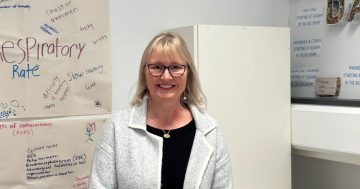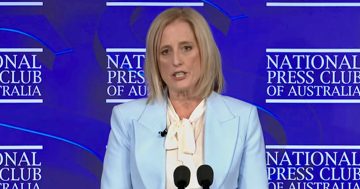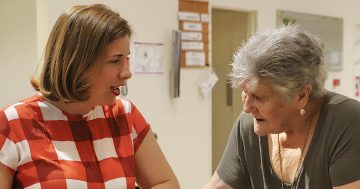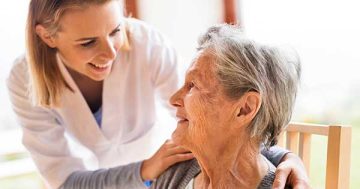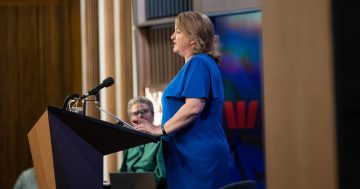Louise Mace* asks if Australia’s aged care crisis is breeding greater gender inequality?
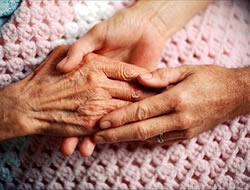 As International Women’s Day draws closer on March 8th, and with the final report on the Royal Commission into Aged care released yesterday, it is vital that we stop and remember the role women and informal carers play in Aged Care across Australia and the rest of the world.
As International Women’s Day draws closer on March 8th, and with the final report on the Royal Commission into Aged care released yesterday, it is vital that we stop and remember the role women and informal carers play in Aged Care across Australia and the rest of the world.
These women are wives, daughters, sisters, grandmothers, employees, and business owners and they continue to represent a significant majority of elder care that communities all over the world rely on.
According to research, not only do women continue to keep stepping into traditional roles of elder care based on a value system that is inherit from within themselves and deeply ingrained as societal and family norms, but there may also be a bigger problem looming.
Research shows that while the plight of women seeking equal opportunities may be moving in a slightly more positive direction regarding childcare benefits and employee assistance schemes, in contrast there is an obvious lack of attention on the elder care impact.
Particularly regarding employee benefit schemes and gender equality targets in the workplace.
Often these women have reached an age, when they are in a more senior and pivotal role, or they have already sacrificed many of their younger years in the work force due to childcare needs.
Similarly, many women find themselves in an unplanned elder care situation.
Unlike caring for children who typically grow older and more independent as time goes on, women on the other side of the elder care spectrum can find themselves in an unpredictable web of uncertainty for their foreseeable and longer-term futures.
According to Professor Anne Bardoel from Swinburne University interviewed last year for this article, her research shows that many women are already turning down roles and not stepping forward for promotions due to the demands of elder care.
This is a problem that is increasing in severity for more women than ever before.
Could this mean that we are hurtling towards one of the biggest barriers in the battle for gender equality society has ever seen.
If you throw in age discrimination on the more mature worker, who is also more likely to be female, a later entrance to the workforce due to prior childcare demands, she may also not be financially as secure as her male counter parts, then the negative domino trajectory seems alarmingly obvious.
Despite the press and attention of the past few years on institutional aged care, according to the ABS most elderly people do not live-in residential care.
Also, most older Australians do not receive government assisted home care packages which as we know are in somewhat short supply.
Even if they did qualify for the benefit and knew how to go about getting one, the findings of the most recent Aged Care Commission report is set to reveal that the Home Care sector will be in need of almost as big an over haul as residential aged care services.
According to the Medical Journal of Australia, Australia has one of the highest proportions of elderly (people aged over 65) living in residential care, yet this figure still only equates to around 6 per cent.
While many older adults in Australia still live independently in their own homes or with assistance from within their own families, it is also important to note those sad cases who fall through the cracks and have neither family or formal care they know how to or are willing to access.
According to international data by the World Journal of Psychiatry, nearly 70 per cent to 80 per cent of the impaired elderly are cared for at home by their family members.
There are varying estimates across different countries, but what is consistent is that female caregivers, who are wives, adult daughters and working in important roles that contribute to the framework of our societies are overwhelmingly the first on call carers and end up in a role that can last for years.
Many of these women find themselves in poor health themselves.
The question is, are these women, their equal rights, and the importance of the role they are providing falling under the radar?
Within a parallel timeframe, as the Royal Commission into Aged Care is released, we know that results will reveal a deeply flawed aged care system that will require monumental changes that may take years to implement.
In the meantime, what does that mean for women who are carers and the future of our rapidly ageing population.
Carers Australia is a peak body that represents all carers Australia wide and they have actively lobbied government as part of their involvement into aged care commission to call on better respite and flexibility for informal carers.
A great step forward but there is more to be done.
With less people choosing residential care, thanks to COVID and the horror stories on inadequate care coming out of the Royal Commission, there can be little doubt that we are on a collision course with dire predictions for both our elderly care recipients who are relying on overwhelmed family members at high risk of burn out and carer fatigue.
If we also consider the fight for gender equity and equal rights for women, the time to proactively engage in solutions is more important than ever before.
As mentioned in an article by HRM, Jill Adams reinforces the importance of seeking professional advocacy support and advice, when the time arises and ideally before it gets worse.
Services like the one Jill and her family received from the New Way to Stay team can make an incredible difference with improving choice, clarity and control as an elder care crisis occurs.
Services offered like this one to employees, while sadly rare in the Australian workplace, are without doubt an effective way to support impacted employees and provide a gateway for better ageing and stronger workplace gender equity.
*Louise Mace is the Managing Director and Founder of New Way to Stay. She can be contacted at newwaytostay.com.au.
This article first appeared at womensagenda.com.au.


